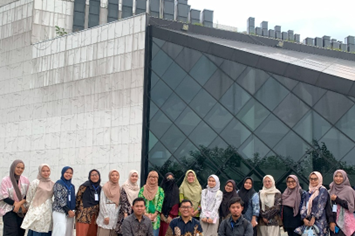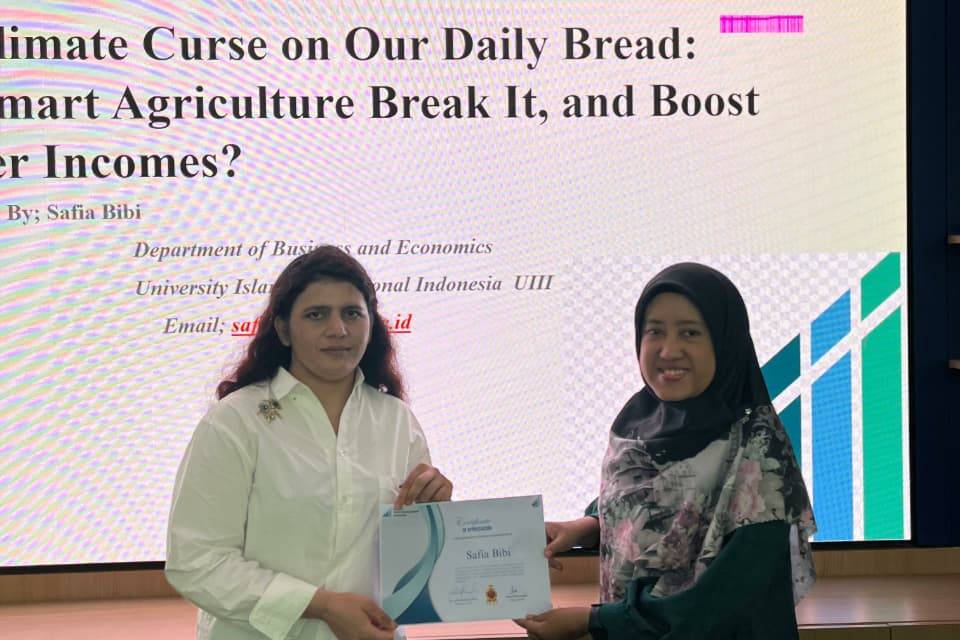
by M. Ismail S.*
INTRODUCTION
Economic Development Model: Definition and Importance
Material well-being and a good standard of living are universal aspirations for democratic governments. However, the specific method for achieving these objectives is a source of substantial theoretical and political disagreement. Recent policy objectives have been driven by macroeconomic concerns that promote austerity in the wake of the most devastating recession since World War II. With the passage of time, it is becoming evident that the short or medium success of capitalist nations is reliant on creativity, entrepreneurship, and manufacturing – all of which are plainly microeconomic concerns. However, notwithstanding their popularity, these problems persist only one component of a tumultuous and contentious debate over the role of state in the economy, specifically in promoting future economic growth.
Amartya Sen (1999) defines progress as the emergence of autonomy and considerable liberties that enable members to actively participate in economic life. Economic growth occurs when interested parties learn new skills to contribute to the economy. By reinvesting capital in new, innovative, productivity-enhancing ways, Joseph Schumpeter (1961) claims economic development has been made. Schumpeter said economic development involves a fundamental change. Changing the industry basis, population’s education and employment, and social and structural fabric.
The establishment of high-quality organizations drives economic growth, say economists (Rodrik et al. 2002). Lipset (1959) defines economic progress as the efficiency of socioeconomic organizations. Organizations are a society’s rules, enforcement techniques, or behavior standard (Ostrom 1986). The accumulation of wealth, the learning of new skills, inventions, and the transfer of technologies are all supported by high-quality institutions (North and Thomas 1973). To make progress economically, we need institutions that are open, risk-tolerant, and variety-loving, and that believe in the public-private mutual benefit.
In conclusion, the extension of human potential via the efforts of citizens, businesses, and communities is what constitutes economic development. The term “economic development” refers to the increase in productivity as well as the distribution of products and services. To make development economically, we need institutions that are founded on openness, tolerance for risk, variety, and governmental and non – governmental sectors that are mutually beneficial to one another. Economic development is essential to both the growth of our economy and our economic future.
Islamic Economic Development Model: A Counter toward Conventional Rational Economics Model
In opposition to monetarism, which finds egoism and greed justifiable and everything else irrational, Islamic economics is committed. A socioeconomic actor is more inclined to act in a way that benefits others, even if it reduces his own material enjoyment (3:92). The idea is to improve man’s voluntarism by linking donating to spiritual elevation. This goal cannot be attained by imposing a totalitarian solution and denying people’s rights. Ideal economic conduct in such an Islamic community distinguishes the Islamic economy: cost – effective behaviors are morally motivated. Doing good for others, even if it means compromising one’s own monetary wellbeing, weakens the relationship between a person’s decision and their economic wellbeing. The divine law of al’adl wal ihsan explains the first-best configuration of demand, production, and distributive relations, but not always in a neo-classical sense. This approach requires recognizing the underclass’s social rights. The primary decision rule will be a lexicographic ranking of human preferences to express the poor’s cultural demands above the rich.
Social choice is a philosophical and economic challenge in an Islamic economy. Arrow’s impossibility theorem (1964) clearly highlight that a social decision rule built from individual decisions is insurmountable if all assumptions are true. The law might easily impose its decisions on society but Islam forbids a dictatorial solution. Firstly, the domain of demand is not unbounded because in the Islamic economy, unlike the Benthamite real scenario, some preferences must be given a zero weight, and this is achieved not indiscriminately, as shown in a clearly set down moral standard like al’adl wal ihsan.
The Islamic concept of freedom contrasts from Kant’s view of Man’s absolute autonomy, which is assured by obeying his own laws. It is distinct from the latter in two ways. First, in Islam, man’s sovereignty is limited to Allah’s Will (96:6). Furthermore, the law of liberty is divinely established, which renders it universally applicable to Muslims without reducing its reach or generality. Islam rejects absolute personal or governmental ownership. Allah owns everything (3:180). It corrects socialism’s absolute denial. Humanity receives Allah’s legacy. It’s not given to a few or the state. The premise of trusteeship, which is property in Islamic law, alleviates the capitalistic notion of freer property ownership. The Quran instructs those who have to contribute to those who do not while enjoying private property (57:10). Second, in the Islamic system, the person’s weighted choices are ordered to reflect equality concerns, violating Pareto optimality. Given the chance, an Islamic economy that helps to increase individual and society welfare will be possible. An ethically-based Islamic economic condition can be caused by human desires. The establishment of an economy may not require dictatorial imposition.
Islam is a concept of right, since it says what is right and then allows humans will choose the most profitable path of action within the institutional constraints that must finally mirror Islamic goals. Such a worldview is not authoritarian because right and bad conduct are inherently voluntary (10:108). This perfect philosophy has four ethical axioms: Tawheed (Oneness), Al’adl wal ihsan (Balance), Ikhtiar (Free Will), and Fardh (Social Responsibility). The Unification Axiom argues that an individual’s spending decisions must be ethical.
Islamic Economic Development Model: Philosophical Ground and Motive Force
The ideal Islamic state the social optimum cannot be achieved without a redistribution of income and assets from the wealthy to the poor. The optimal growth model does not allow for expanding income and wealth inequality. Islam’s righteous ethic shapes an Islamic economy. This philosophy assumes unity, equilibrium, freedom, and social responsibility. For Equilibrium to be achieved, it is necessary to reorganize the entire operation, expenditure, and circulation relations, not just to meet the needs of the poor. A social agreement agreed upon by sensible people must be codified to achieve this goal. To achieve community cohesiveness and economic success, public policy must create a common framework of thought and conduct. Narrowing the gap of Islamic ethical principles and Muslim realities will establish these prerequisites.
To implement such a program, “ethics, regulations, and development must interact dynamically” (Sirageldin 1995). The drive for such a model is the acknowledgement of commitment, not individuality, as the basic means of economically and socially conduct, and the need to balance growth, performance, and fairness in all economic sectors. This will require a well-defined stance for a democratically governed authority in improving economic problems, especially modifying societal structure and eliminating social exploitation. Determining the optimum level of government is fundamental to Islamic economics.
CONCLUSION
For Muslim societies, it is a challenging issue because it requires intellectual abilities, implementation, and integration to characterize the ability to compete, if not hegemony, of an effective approach given notice by a profound concept of moral value systems with the certitude that selflessness is not a finite commodity to be economized, but develops with increased use. If we do not respond swiftly to significant concerns throughout this fast-paced world, we may be condemned to history’s margins. Also appealing those modern civilizations have swapped virtue for monetary wealth, which are monopolized by a few. Islam might lead the way by teaching that we acquire ethics and rationality by giving to the poor.
Islam gives a consequence picture in which man must utilize his discretion powers to seek out the truth by intellectuality and observation. We show them Our predications on the borders but within themselves till they realize it’s the truth. (41:53). Muslim societies must build an egalitarian social order inside a democratic government. Achieving this purpose requires creating an environment where human freedom can flourish and find creative fulfilment. Reason needs knowledge, and faith needs inquiry and thought. Using faith and reason, one must show that adding ethical considerations does not restrict the spirit of study.
———
This paper is the short version which was submitted for the author’s semester two mid-exam assignment for subject “Principles of Islamic Economics”. For the complete version and further discuss, commenting below is suggested.
- ABOUT THE AUTHOR
Ismail is a semester-three Master of Art student, majoring Economics in Faculty of Economics and Business, UIII. Some field of interest of his are macroeconomics, green economy, and Islamic financing. Few years ago until recently, he had been filling the leisure time he had by teaching at newly established private senior high school in Yogyakarta, tutoring IELTS for a renowded English course in Pare Kediri, and accepting translation projects. Now, while being occupied with his thesis proposal preparation, he commits to do some research, attend conferences and do beneficial voluntary activities, related to his major in particular.

